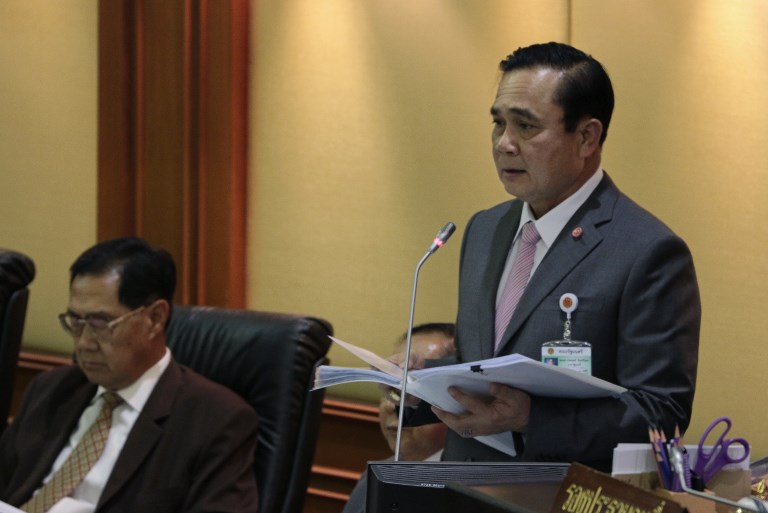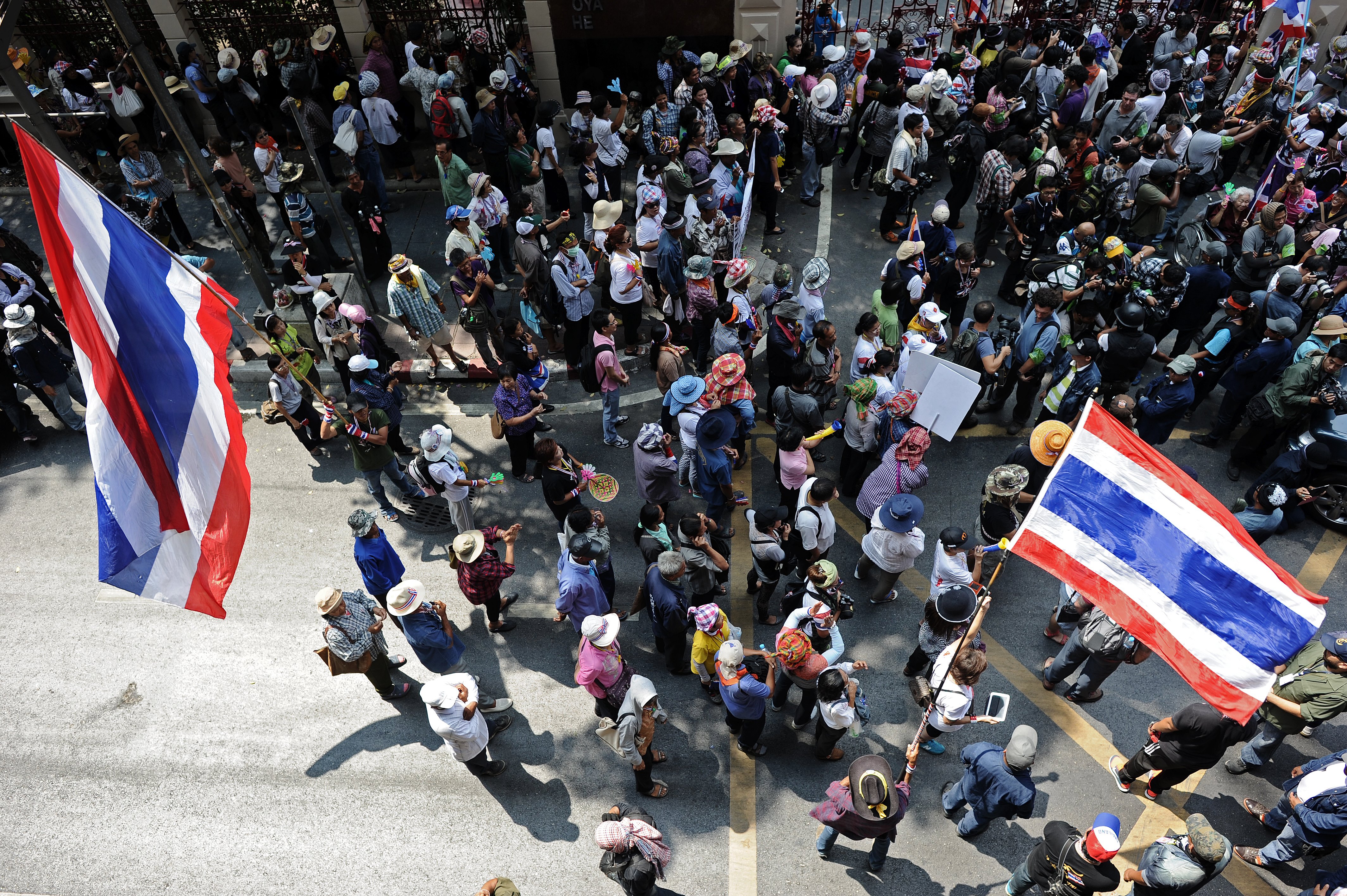Thailand is headed for another political crisis and it can’t stop itself

Thai prime minister and junta leader Prayut Chan-O-Cha (R) delivers a speech to members of the National Legislative Assembly at the parliament in Bangkok on September 12, 2014. Thai junta leader Prayut Chan-O-Cha on September 12 said his regime would use legal, psychological and technological measures to protect the monarchy against defamation in his first official policy speech as premier. AFP via Asia News Network
On the 16th of May, 1877, French President Patrice de Mac-Mahon dismissed then Prime Minister Jules Simon and named a successor who was rejected by the house of parliament. Mac-Mahon responded by dissolving parliament unilaterally leading to a constitutional crisis which changed the landscape of French politics until well into the 20th century.
Thailand may soon experience something similar.
A dramatic Friday saw the Thai Raksa Chat party nominate the King’s older sister Princess Ubolratana as its choice for prime minister followed by a late-night rebuke and rejection of her candidacy by the king and the palace.
Princess Ubolratana’s nomination was welcomed by parties aligned with the Thai Raksa Chat and former Prime Minister Thaksin Shinawatra who saw her as a foil to the military-backed parties seeking to nominate current despot, junta-chief and prime minister Prayuth Chan-o-cha.
Prayuth overthrew Thaksin’s sister Yingluck in a May 2014 coup and has ruled with a firm grip since. Under his regime, the constitution has been redrafted to enshrine military power and dissent has been met with arrests and prosecution.
Article continues after this advertisementUnder the military-drafted constitution, the junta gets to appoint all 250 members of the upper house of parliament. This means that the military only have to win a fraction of the seats in next month’s lower house elections to ensure its choice of prime minister.
Article continues after this advertisement
Protesters shout slogans during a demonstration to mark the fourth anniversary of junta rule in Bangkok on May 22, 2018. Thai police detained leaders of an anti-junta protest on May 22 who had tried to mark the fourth anniversary of a coup by marching to Government House, one of the largest acts of dissent since the army grabbed power. AFP via Asia News Nework
The princess’s candidacy was seen as a viable alternative to Prayuth’s scheming. The monarchy and the royal family enjoy an elevated status within Thai society and are looked upon favorably by the population.
The palace’s rejection of her nomination on the grounds that it would blur the lines between the monarchy and the government, while understandable, means the opposition needs a new figure to rally behind.
Princess Ubolratana was an ideal candidate as she would have drawn votes from a likely conservative senate that would otherwise uniformly back whatever candidate the military decides to nominate.
This leaves Thailand facing a crisis not unlike France in 1877. If the military succeed in getting Prayuth re-elected he will likely be the leader of a minority government. While the senate is allowed to vote for the prime minister, the lower house will be responsible for most matters of governance.

Thai anti-government protesters wave national flags as they gather outside the Royal Thai Police Headquarters during a rally in downtown Bangkok on March 4, 2014. Tensions eased in Thailand’s strife-hit capital on March 1 after protesters abandoned their attempted “shutdown” of Bangkok, but the move was seen as only a temporary reprieve for the kingdom’s embattled premier. AFP via Asia News Network
Unlike his current stint as prime minister, Prayuth will not have the benefit of a rubber stamp parliament, he will not have a dictatorial clause to push through policy and arrest dissenting voices.
The lower house will likely be hostile to his intentions and wary of his scheming. It will not be an easy path for the one-time coup leader to operate in a democratic environment.
And if Prayuth should, given his history of temper tantrums and jejune understanding of politics, dissolve parliament and call snap elections there will likely be a constitutional and political crisis.
Another coup by those loyal to Prayuth will likely not be as tolerated as it was in 2014 when the populace was fatigued by a decade of political instability.
While Prayuth may have made it easy for himself and his cronies to retain their hold on power, that is where the easy path ends and the hard one begins. /ee